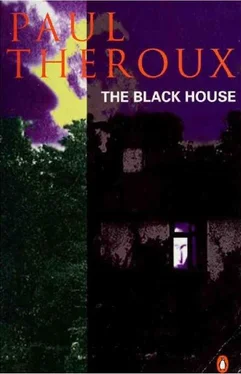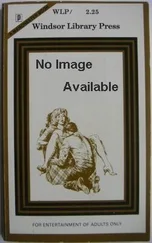Paul Theroux - The Black House
Здесь есть возможность читать онлайн «Paul Theroux - The Black House» весь текст электронной книги совершенно бесплатно (целиком полную версию без сокращений). В некоторых случаях можно слушать аудио, скачать через торрент в формате fb2 и присутствует краткое содержание. Год выпуска: 1996, Издательство: Penguin Books, Жанр: Современная проза, на английском языке. Описание произведения, (предисловие) а так же отзывы посетителей доступны на портале библиотеки ЛибКат.
- Название:The Black House
- Автор:
- Издательство:Penguin Books
- Жанр:
- Год:1996
- ISBN:нет данных
- Рейтинг книги:4 / 5. Голосов: 1
-
Избранное:Добавить в избранное
- Отзывы:
-
Ваша оценка:
- 80
- 1
- 2
- 3
- 4
- 5
The Black House: краткое содержание, описание и аннотация
Предлагаем к чтению аннотацию, описание, краткое содержание или предисловие (зависит от того, что написал сам автор книги «The Black House»). Если вы не нашли необходимую информацию о книге — напишите в комментариях, мы постараемся отыскать её.
The Black House — читать онлайн бесплатно полную книгу (весь текст) целиком
Ниже представлен текст книги, разбитый по страницам. Система сохранения места последней прочитанной страницы, позволяет с удобством читать онлайн бесплатно книгу «The Black House», без необходимости каждый раз заново искать на чём Вы остановились. Поставьте закладку, и сможете в любой момент перейти на страницу, на которой закончили чтение.
Интервал:
Закладка:
“In my ten years—”
“But it’s an odd thing. I still dream about the damn place. I have this dream about once a month, a nightmare in actual fact. I see Fort Portal, that lovely little town, but in my dreams it’s full of chemist’s shops and petrol stations, and neon lights so bright you can’t see the mountains. Well, I won’t bore you any further, but you understand I felt I had to speak my mind.”
He sat and there was an expectant moment, a rustling preparation, as if the people were gathering their hands to applaud him for scoring against Munday. But it passed, the motion in the hall that was like approval settled into silence.
Munday had seen the hall as full of feeble people, inattentive in their distressed old age, derelict, simply warming themselves and going to sleep in the heat. In those snoozing, uncaring faces he had not identified the tall man who was so unlike them, and he had not guessed that the challenge of the man’s authority would stir them. Munday heard his own reply as unsympathetic, even hostile; he felt the man had assumed temporary leadership as a spokesman and turned them against him, and he had become defensive—needless on so insignificant an occasion. But what was maddening was the figure of the man, how, seated, he was no different from any of the old people, and standing so assured.
It happened again: this time it was a woman near the back, who was not old and who might have been pretty, though at that distance it was hard to tell.
“I was fascinated by your talk,” she said. “I was thinking it must take an enormous amount of courage to live in the place you described. You were so far away! Didn’t it ever get you down or depress you?”
“The lack of privacy of course is a very great nuisance,” said Munday. “Sort of goldfish bowl existence. But, no, I didn’t get depressed. As I say, village life can be taxing, and baffling, but that’s as true here as it is in Africa.”
“Are you saying the Africans are the same as us?” asked a man down front.
Several replies occurred to Munday. He was going to say, “God forbid!” but that was cruel; and “Yes,” but that was untrue. He said, “The issue isn’t as black and white as that,” and there was some laughter.
“You said in your lecture there were pygmies in that area,” said a man holding his hat at his chest. “What are they like? Are they as small as people say?”
“Bigger than your hat. About the size of a nine-year-old. I say that because nine-year-old Bwamba kids used to stand on the Fort Portal road and flag down tourists’ cars. They’d claim to be pygmies and ask to have their pictures taken for a shilling. Tourists didn’t know the difference. But it’s quite easy to spot a real pygmy. When you see a tiny girl with fully developed breasts you know you’re looking at a pygmy—that’s the litmus test, you might say—the breasts.”
“Do they intermarry with other tribes?”
“The Bwamba take them, usually as second wives. You can have any pygmy woman for life for just under ten quid, two hundred shillings. They only marry in one direction. I mean to say, no pygmy man would ever marry a Bwamba woman. “Once,” Munday went on, “I met a pygmy man whose ambition it was to marry an American Negro. Some writers want to be Shakespeare and some of you would like knighthoods. This pygmy, as I say, wanted to marry a fully-grown Negro woman. Well, we all have our dreams.”
There were more questions, tentative ones about sanitation, specific ones about hospitals and food. Mr. Lennit asked about the railway. “I take it you believe in ghosts,” one man said. Munday said he believed in the possibility of ghosts: “People I respect have seen them.” Then a small precise lady in a fur-collared coat asked about the heat. Munday swiftly gave the reply he had practiced, and speaking above the laughter, the vicar said, “I think we’ll close on that note—”
Later, with Lennit assisting him, Munday put the implements into his canvas sack. Emma was talking to the vicar, as he helped her on with her coat. She was explaining the muddy paw prints she had not been able to wipe off.
Munday said, “Something’s missing.”
“What is it?” asked Lennit.
“I don’t know. But I started out with twenty items, and now I only have nineteen.”
“You’re sure?”
Munday did not reply; it was a doubting question he hated.
“Here, let me count them,” said Lennit
“I’ve done that already.”
“What seems to be the trouble?” asked Crawshaw.
“Says someone nicked one of his spears,” said Lennit, and shrugged.
Now, Munday wanted to kick the old man.
“You’re sure?” Crawshaw asked Munday.
Emma saw that Munday was furious. She said, “He always counts them before he passes them round.”
“It’s a habit I picked up lecturing to African audiences,” said Munday, and he snatched at the drawstring of the canvas bag.
9
It was like flight. They caught the 8:20 train to London outside Crewkeme at a narrow Victorian station of soot-blackened stone, with high church windows and a steeply pitched roof. The sharp spires and clock tower were wreathed in morning mist, and there was a similar whiteness, mist and a sprinkling of frost on the grass, in the fields that lay beyond the siding. Standing there, waiting for the train, Munday had feared it might not come to take them away, and he felt gleeful when he saw it rounding the
bend, the yellow and blue engine hooting. “You keep these,” said Munday, giving Emma the day-return tickets in the empty compartment. She slipped them between the pages of the novel she’d brought, an Agatha Christie from the shelf. Munday had his Times\ he read the Diary, the letters and glanced at the obituaries and then folded the paper flat and held it in his lap, not reading it, his hands spread over it, as Emma’s were on the book that rested on her knees. They faced each other, rocking, only looking out the window when the train slowed down. At Yeovil Junction Emma said, “East Coker is near here. We must drive over some time.”
“East Coker?”
“T.S. Eliot.”
“Of course,” said Munday, but he had no clear idea of what she was talking about.
Breakfast was announced at Sherborne, where a tall severe man whom Munday said must be a classics master stood on the platform with a briefcase and a book in his hand, waiting to board. Emma and Munday left the book and newspaper on their seats to show they were occupied and went into the dining car. Emma had toast and tea, Munday the complete breakfast.
“Why no kippers?” he asked the waiter.
“They do kippers on the busier trains,” said the waiter, whose tight jacket was stiff with starch. “Not on this line, though. Not important enough.”
Munday felt the waiter was getting at him for riding an unimportant line. He said, “I shall write a letter to The Times ”
“They’re rationalizing the catering. We don’t serve more than a dozen breakfasts in all. After Salisbury it’s just coffees. How do you want your eggs?”
When breakfast came Emma said, “He’s forgotten my marmalade.”
“He hasn’t forgotten,” said Munday. “Rationalizing the catering.” He ate methodically, glancing out the window between swallows. There were cows and sheep in the fields, and still fog and mist in some valleys, and vapor the color of the sky hanging in bare branches. He saw a man emptying a pail in a trough; the man paused and looked up at the passing train. Munday saw him clearly, the large-fingered gloves, the peaked cap, the cutoff boots. He knew the man did not see him; he saw a train, only that, but he was completely exposed. Munday felt guilty, observing him in this way, eating his eggs, and he pitied the man for whom a train was an event to relieve his solitude and make him turn away from his work. Then he disliked the man for his curiosity and saw him as a possible thief.
Читать дальшеИнтервал:
Закладка:
Похожие книги на «The Black House»
Представляем Вашему вниманию похожие книги на «The Black House» списком для выбора. Мы отобрали схожую по названию и смыслу литературу в надежде предоставить читателям больше вариантов отыскать новые, интересные, ещё непрочитанные произведения.
Обсуждение, отзывы о книге «The Black House» и просто собственные мнения читателей. Оставьте ваши комментарии, напишите, что Вы думаете о произведении, его смысле или главных героях. Укажите что конкретно понравилось, а что нет, и почему Вы так считаете.












